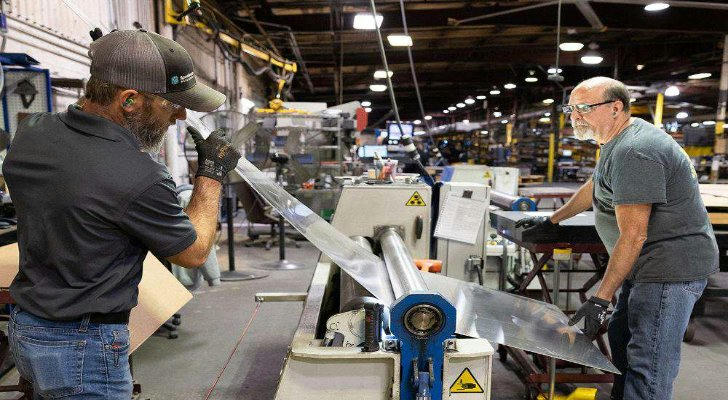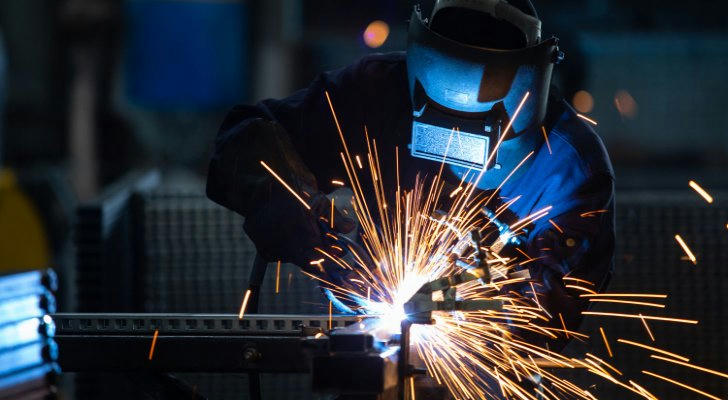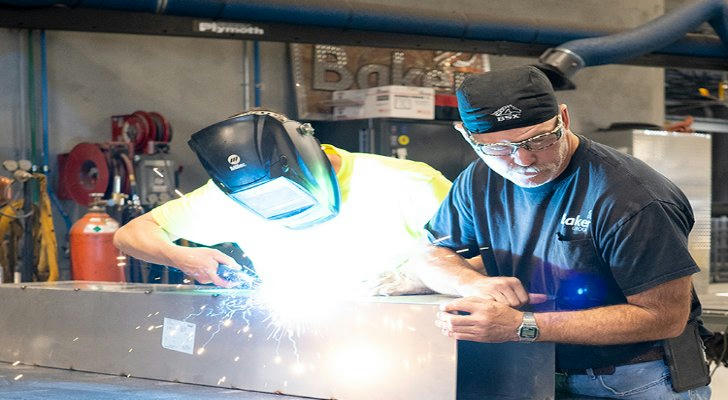Metal Jobs in the United States in 2025: A Rewarding Career Path
With the rapidly developing industrialization, the metal industry, as an important foundation supporting modern manufacturing, has attracted more and more job seekers. This article will discuss in detail why to choose metal jobs, types of metal jobs, market demand, wages and benefits, and share information on how to find metal jobs.

Why choose metal jobs?
Broad employment prospects: According to the U.S. Bureau of Labor Statistics, employment in the metal and plastic processing industry is expected to grow by 8% between 2020 and 2030, higher than the average for all occupations.
Good salary and benefits: Taking the United States as an example, the median annual salary of metal and plastic processing workers in 2021 was 38,190, higher than the median annual salary of 41,950 for all occupations.
Great career development space: The metal industry covers a wide range of occupations, such as welding, metal processing, machinery maintenance, etc. Job seekers can choose different directions based on their interests and skills.
Skill training and development: Many metal jobs provide on-the-job training and continuing education support, which provides good opportunities for personal career development.
Types of Metal Work
The types of metal work are broad and cover many occupations related to metal processing, manufacturing, inspection, and maintenance. Here are some of the main types of metal work:
Welder: Welders are responsible for joining metal parts together through welding technology to ensure the stability and safety of the structure. They need to master a variety of welding processes such as gas welding, arc welding, laser welding, etc. Welders usually work on construction sites, manufacturing plants, and repair shops.
Metal Fabricator: Metal fabricators are responsible for cutting, forming, and assembling metal materials. They use a variety of tools and equipment such as CNC machines, grinders, punch presses, etc. to perform fine metal processing work. Metal fabricators can specialize in the processing of different materials such as steel, aluminum, copper, etc.
Machinery Repairer: Mechanical repairers are responsible for maintaining and repairing metal processing equipment and machinery to ensure the normal operation of the production line. They need to have mechanical knowledge and troubleshooting skills, and be able to perform regular inspections of equipment and necessary repairs.
Material Inspector: Material inspectors are responsible for monitoring and inspecting the quality of metal products to ensure that they meet industry standards and customer requirements. They use a variety of inspection tools and instruments to measure and test materials, including visual inspection and precision measurement.
CNC Machine Operators: CNC machine operators use computer numerical control (CNC) machines to process and manufacture metals. They write and input programs to ensure that the machines operate within specified parameters to produce accurate metal parts.
Metal Tool Designers: Metal tool designers are responsible for designing and manufacturing molds and tools used to produce metal parts. They need to have extensive technical knowledge and be able to produce molds that meet specifications based on engineering drawings or design requirements.
Metal Finishers: Metal finishers are responsible for treating metal surfaces to improve their appearance and performance. They use spraying, electroplating, polishing and other techniques to ensure that metal products are resistant to corrosion, wear and tear, and meet aesthetic requirements.
Metallurgical Engineers: Metallurgical engineers focus on the properties, processing, synthesis and application of metals. They often play an important role in research and development, production and quality control, and are responsible for developing new materials and improving production processes.
Mechanical Design Engineers: Mechanical design engineers are responsible for designing and developing mechanical components or systems that use metal materials. They use CAD software to draw designs, perform analysis and testing to optimize structure and performance.
Metal Recyclers: Metal recyclers are responsible for collecting, sorting and processing scrap metal materials for recycling and reuse. They work in metal recycling plants or scrap yards and need to understand the classification standards and recycling processes of metals.
Metal Fabrication Operators: Metal fabrication operators are responsible for the manufacture of metal components according to drawings. They are usually involved in processes such as welding, milling, bending, etc. to build architecture and structural parts.
These types of metal work cover all levels from basic operations to complex design and engineering, providing necessary support for the operation and development of the metal industry, and the requirements for technology and skills are also different. Due to the diversity of the metal industry, job seekers can choose the right career direction and develop their careers in combination with their interests and abilities.

Metal Work Salaries and Benefits
The salary level of metal workers varies depending on the specific position, experience, skills and region.
Salary: According to Khola, the annual salary for welders ranges from $35,000 to $65,000, while senior or specialty welders can make more than $80,000. Other metal workers, such as mechanical repairers, make between $42,000 and $75,000.
Benefits: Most metal jobs offer comprehensive benefits, including health insurance, retirement plans, paid vacations, and training opportunities. According to BLS data, about 86% of manufacturing jobs offer health insurance.
How to find a metal job
There are many ways to find a metal job. Here are some practical methods:
Online recruitment platforms: You can find a lot of job information in the metal industry on websites such as Indeed, Monster, Glassdoor, etc.
Industry associations and organizations: Many industry associations (such as the American Welding Society) provide job postings and career development resources. You can get relevant information by following the pages of these associations.
Employment agencies: Scroll through local employment agencies. Many agencies provide professional career guidance and recruitment information to help job seekers find metal jobs that meet their needs.
Social networks and professional circles: Use professional networking platforms such as LinkedIn to connect with professionals in the same industry to obtain industry insider information and recommendations.
Employee referrals: If you have friends or family working in the metal industry, you can get referral information from them. Many companies will give priority to candidates recommended by employees.
Conclusion

Metal work plays an important role in modern industry. It not only provides stable employment opportunities, but also has a wide range of career development space. With good salaries, benefits and growing demand, the metal industry is attracting more and more people to join it. Through the above-mentioned channels, job seekers can actively look for metal job opportunities that suit them and start a career journey full of potential.
